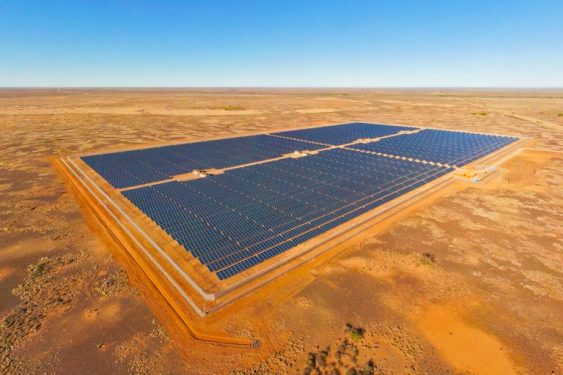Rome, May 22nd, 2017 – “Innovation as the key enabler to power Africa”, is the title of the annual RES4Med, (Renewable Energy Solutions for the Mediterranean) conference, which this year coincides with the fifth anniversary of the founding of the association. This year’s RES4Med/RES4Africa event is entirely dedicated to the subject of innovation as a key factor for development in Mediterranean and sub-Saharan Africa.
The conference aims to analyse the approach and the most suitable operating models to promote the development of projects and initiatives to make electricity accessible to an increasing number of Africans.
Africa is a continent characterized by a very young population and is increasingly becoming a technology testing laboratory. Access to energy is fundamental for all. Energy is a key prerequisite for improving economic activity and quality of life. For this to happen, Africa still needs important infrastructure.
“There is an urgent need for renewable energy in Africa – says Antonio Cammisecra, President of RES4Med - There are many obstacles, but many innovative solutions are on the horizon, presenting an exciting challenge to take on. RES4Med and RES4Africa have a clear vision of how to use the best energies to achieve this goal."
“Africa is increasingly becoming a great technology testing lab - says Francesco Venturini, Head of Enel’s Global E-Solutions – which can make a fundamental contribution to the future of the industry. Solutions like minigrids, which combine the use of batteries with renewables, are a valid response to the issue of energy access as well as acting as a catalyst for development. "
In order to meet its growing demand for energy, Africa has an urgent need to increase the level of investment in the electricity sector. Africa is rich in resources and has high economic growth rates but its people still have limited access to energy. Suffice to say that energy demand in sub-Saharan Africa has increased by 45% since 2000, and still accounts for only 4% of the world's total, despite Africa representing 13% of the world's population. The current energy situation is not enough to cover a household’s average daily needs and definitely fails to meet the energy needs of a community or those of the industrial or agricultural sector. In this context, the private sector and international investors will have a key role to play in supporting new investments, contributing to increasing the system’s competitiveness in order to support innovation in energy infrastructure.
The importance of different and innovative business models (mini-grid, off-grid, urban and suburban network development, energy access, etc.) and the opportunities arising from the development new technologies has emerged. New business models associated with the development of the renewable value chain can contribute to the founding of countless business partnerships throughout the chain. New technologies will encourage new aggregations between public and private entities, with access to adequate funding to cover the costs of development. In this respect, it is crucial to develop the potential and capabilities of human capital, in order to optimise the contributions of technology, finance and politics as well as speed up countries’ progress. Creating specific know-how and developing training and capacity building activities are essential steps to strengthen the role of individuals throughout the value chain and become crucial for any successful project.
Access to energy in rural areas, i.e. all areas not currently reached by transmission and distribution networks, can foster economic development, the creation of local businesses, job creation, health services, education, women’s empowerment, environmental protection and mitigation of climate change, as well as water use and food preservation. Off-grid and mini-grid renewable energy solutions are technological solutions consisting of small generation plants from renewable sources ranging from 20-30kW to about 1 MW based on photovoltaic generation and energy storage. This is the area in which an MoU has been signed between RES4MED and the Alliance for Rural Electrification, which defines common rules for close collaboration between the two associations.
Kenya Power International director, Dr. Jeremiah Kiplagat, announced the country's fibre optic network upgrade programme for use by telecommunications companies. Kenya Power Lighting Company (KPLC) has recently signed a MoU with RES4Africa intended, among other things, to build a 30 kW mini hybrid network in Nairobi for training purposes (Micro Grid Academy).
The Ethiopian government, with Deputy Industry Minister Mebrahtu Meles, has announced a partnership with UNIDO, UNDP, FAO and Italian Development Cooperation for the construction of new agro-industrial parks intended to set up private companies operating in the food chain. Companies will therefore be able to benefit from economies of scale in procurement processes and distribution logistics as well as cutting-edge infrastructures. The electrification of these infrastructures is crucial: although the parks should all be powered by the national grid, the possibility of building renewable energy plants that could supplement or overcome the network's shortcomings is not being ruled out. Ethiopia is also seeking partnerships with Italian companies interested in cooperating.
Working with engineering company CESI, at the request of the Kenyan Ministry of Energy and Petroleum, RES4MED has also launched a renewable energy integration study. The study will allow an estimate to be made of the maximum green capacity that could be added by 2025 and 2030 without compromising the stability of the transmission and distribution networks, assessing the resulting benefits on electricity bills.


